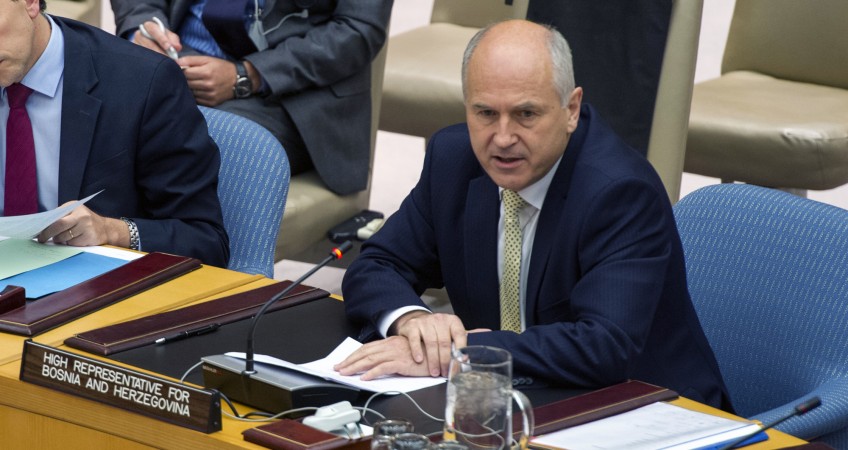The High Representative, Valentin Inzko, addressed the UN Security Council (UNSC) today and presented his regular semi-annual report on the status of peace implementation in Bosnia and Herzegovina, covering the period from 16 April through 15 October 2019.
In his address, the High Representative expressed regret that the government formation process has now stretched for over a year, adding that “although the Council of Ministers from the previous mandate continues to function until the appointment of the new Council of Ministers, it remains hamstringed by the politically calculated and unnecessary blockade of the BiH Parliament. This means that no new legislation can be adopted, including the state-level budget, which severely limits the country’s ability to effectively deal with emerging issues, such as the migrant crisis.”
The High Representative highlighted the continued divisive and destabilizing rhetoric that overwhelms the political climate: “Some political leaders from the RS have continued to make statements expressing separatist tendencies or predicting the dissolution of BiH, while some Croat representatives seek a territorial rearrangement of the country. At the same time, the biggest Bosniak party has again adopted a party platform advocating the Republic of BiH, which was not helpful.” He also stressed that the glorification of convicted war criminals, which is still widespread, makes the possibility of a true and lasting reconciliation amongst all peoples much harder to attain.
Speaking about the BiH Constitutional Court ruling on Mostar and the ECHR ruling in the “Sejdić-Finci” case, which remain unimplemented 10 years on, the High Representative underlined that the “rule of law and the fight against corruption should be priorities for BiH. Accordingly, a considerable number of citizens cannot exercise their basic rights as citizens, as they cannot vote in Mostar or be candidates for a number of state offices. This has been going on for a decade. To nobody’s surprise, public opinion polls show that 3/4 of the citizens of BiH are extremely or mostly dissatisfied with the state of the rule of law and the work of judicial institutions. I will, therefore, make the rule of law and the functionality of judicial institutions my priorities in the coming period.”
The High Representatives also said that the most reprehensible issue is revisionism or outright denial of the Genocide in Srebrenica, which is a legal fact as confirmed in judgments of both international and domestic judicial bodies, including the ICTY – a body established by the UN Security Council. The HR stated: “Genocide was perpetrated in Srebrenica in 1995! Nothing and no one that can change this fact.” The HR thanked those individuals and organizations who keep the truth about Srebrenica alive and continue to search for justice, particularly the Mothers of Srebrenica. “The Mothers deserve our deep appreciation and admiration, said the High Representative.
High Representative Inzko’s message to politicians was simple: Overcome your differences, abandon the destabilizing rhetoric, and move the country forward on its European path.
The High Representative also took the opportunity to call on the international community to “continue to work in unity to preserve the achievements of the past two decades and, above all, deliver on the promise of a better future for the citizens of BiH”.
The full text of the High Representative’s address is available on the OHR website.














